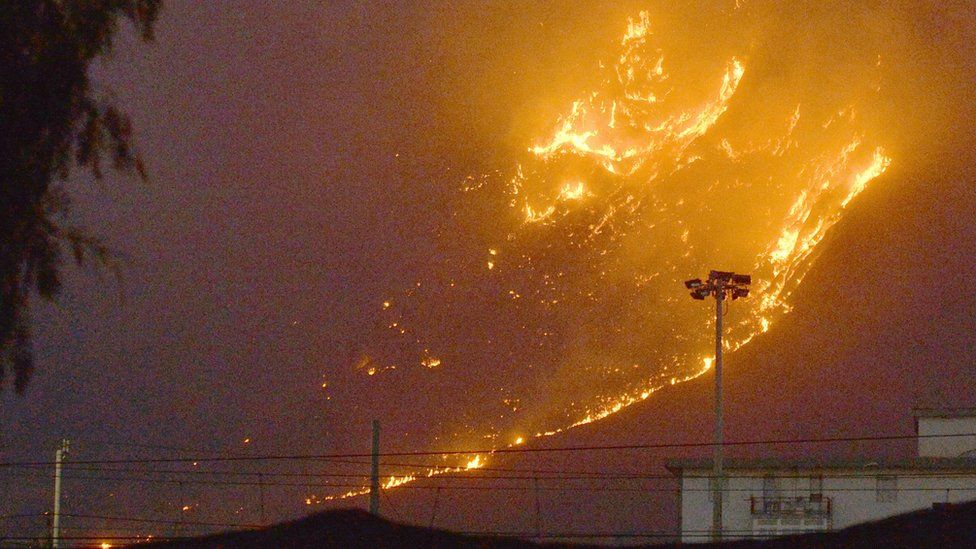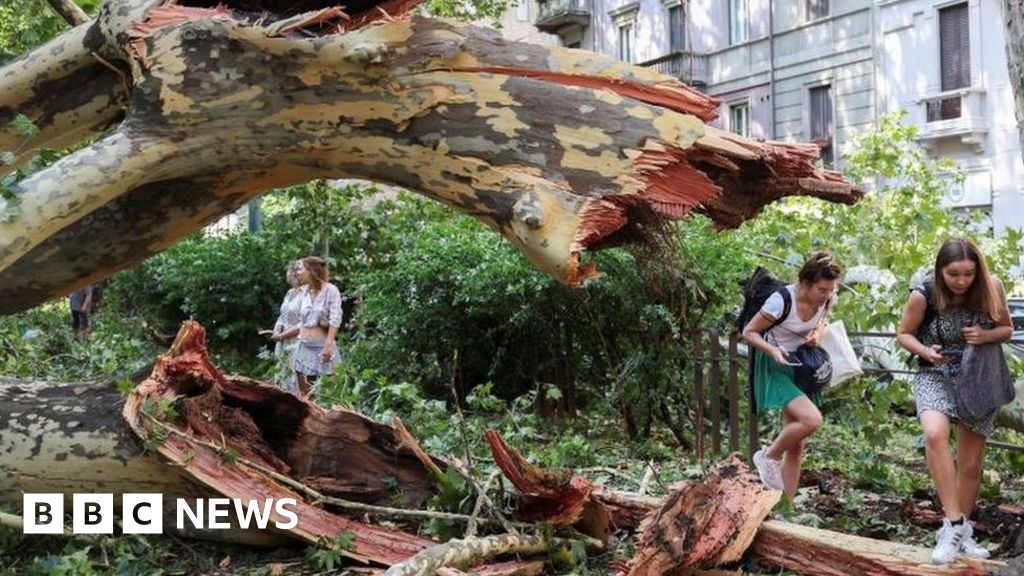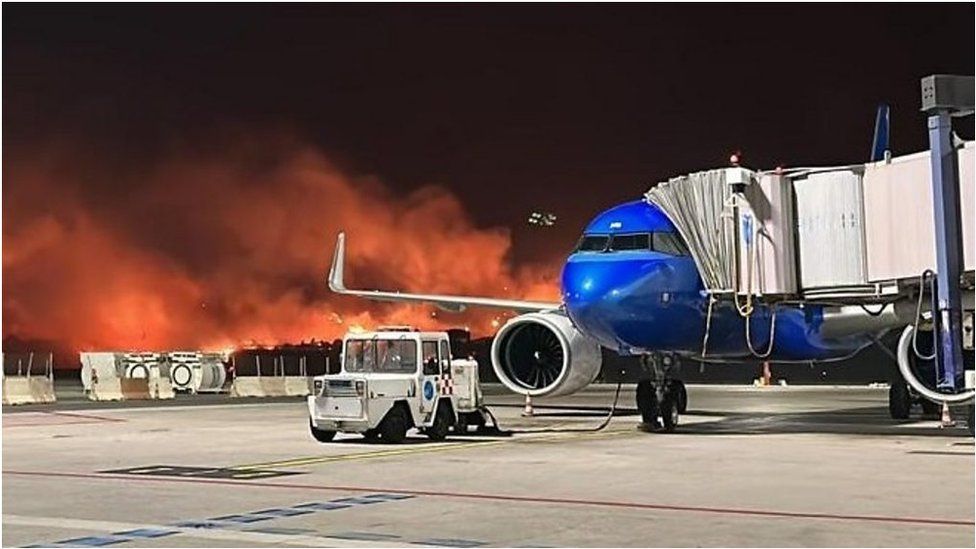This video can not be played
To play this video you need to enable JavaScript in your browser.
Extreme weather has been battering Italy from north to south.
Wildfires are raging in Sicily after weeks of record-breaking temperatures, with local media warning that the city of Palermo is “encircled” by fires.
Meanwhile, northern regions are reeling from violent storms and high winds that uprooted trees and lifted roofs off buildings.
In some places, tennis ball-sized hailstones injured people, damaged cars and destroyed crops.
A 16-year-old girl was killed when a tree fell on the tent she was sleeping in at a summer camp near the city of Brescia, while a middle-aged woman died after also being hit by a falling tree in Lissone, north of Milan.
Overnight, the regions of Lombardy and Veneto experienced torrential rainfall and extremely strong winds, which reached 100km/h (62mph) in Milan. On Tuesday, local authorities told residents to stay away from public parks, as there is a high risk that branches might snap off trees.
One of the city’s main attractions, the 15th-Century Sforza Castle, was closed to the public on Tuesday “due to damage caused by severe weather”.
The mayor of the city, Giuseppe Sala, said: “I have never seen anything like this… We can’t deny it any longer – climate change is changing our lives.
“We can’t pretend it’s not happening and we absolutely can’t keep doing nothing,” Mr Sala said in a video shared on Facebook.
Meanwhile, Sicily – which has already been brought to its knees by a prolonged heatwave – is battling wildfires that are threatening towns and cities across the island. Temperatures of more than 47.5C (117F) were recorded in Catania on Monday.
Several resorts and tourist hotspots around the island have began evacuating their guests.

Palermo Airport was temporarily closed to air traffic on Tuesday morning after wildfires in the hills around it reached the airport perimeter.
The fires are causing deaths across southern Italy. Local media reported that two bodies were found charred in a house near Palermo airport.
In Sicily, an 88-year-old woman died after falling ill, as the fires prevented emergency services reaching her.
A 98-year-old man in the region of Calabria died when the flames from a wildfire reached his home where he was bedbound.
In Sardinia, a firefighter died of a stroke after spending hours battling a blaze.
A firefighter was seriously injured near Palermo while trying to tackle one of the blazes, which are being fuelled by high winds, local media reported.
More than 200 people in Palermo have already sought medical attention for smoke inhalation. Two hospitals have suspended routine appointments to ensure people suffering from smoke inhalation or other illnesses related to the extreme heat can be looked after.
Half of the bus network in Palermo has been suspended as the vehicles are overheating and cannot cool down because of consistently high temperatures.
Hospital Cervello, in the north of the city, is being threatened by the flames, while some wards have been evacuated, Italian media said.
The farmers’ association, Coldiretti, said Sicily was facing an “unprecedented catastrophe and incalculable environmental damage”.
The minister for civil protection, Nello Musumeci, wrote on Facebook: “This is one of the hardest days in Italy’s history for 10 years. Climate change has hit our nation and demands that we all change our ways. There are no excuses.”
“We knew that today would be the hardest day,” Prime Minister Giorgia Meloni told Italian radio RTL 102.5. “We have a situation where very high temperatures are combined with wind, which makes using Canadair [firefighting aircraft] impossible.”
“We are following the situation, which is very delicate, minute by minute.”.
Italian meteorologist and climate expert Giulio Betti told the BBC that the exceptional heatwave that has been blighting the south of Italy and the storms that affected parts of the north are “two sides of the same coin”.
“The northern regions, which were right in the middle of very fresh Atlantic air and intensely hot African air, became a perfect breeding ground for very intense storms,” Mr Betti said.
“What is striking [this year] is the intensity, frequency and duration of the heatwaves… And these have not always occurred.”
Several regions have asked the government to declare a state of emergency.
Related Topics
-
-
18 hours ago

-

